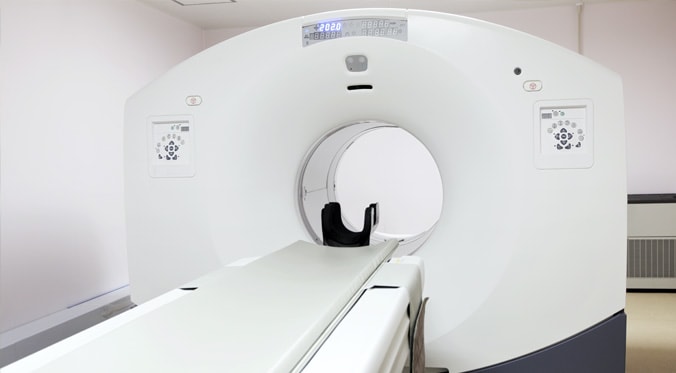Breaking News: FDA Approves a Highly Sensitive Prostate Cancer Imaging Agent

What this means for patients: Today, the FDA approved another highly sensitive imaging compound specifically for prostate cancer called 18F-DCFPyL. This is the second such approval in less than six months; in December, the FDA approved 68Ga-PSMA-11 PET. These pioneering new scanning tools will revolutionize prostate cancer detection. Both imaging agents are used to “light up” PET scans to help doctors find smaller tumors earlier.
Both compounds are part of a new type of scanning technology called PSMA PET imaging. 68Ga-PSMA-11 and 18F-DCFPyL (or PyL for short) are radioactive tracer molecules designed to bind to PSMA that doctors can use to “light up” PET scans for regions that contain cancer. PSMA (“Prostate Specific Membrane Antigen”) is a protein found on the surface of prostate cancer cells. This new technology is more sensitive than conventional imaging (such as CT and bone scans) in finding areas of prostate cancer in the body.
Having more complete and accurate information about where cancer is located can help doctors make better treatment plans. Finding metastases earlier, when they are much smaller, will have a significant impact for patients.
PyL PET imaging is approved for two types of patients with prostate cancer: 1) those with suspected metastasis who are candidates for initial definitive therapy (e.g., newly diagnosed with high-risk disease) and 2) those with suspected recurrence based on elevated PSA level (e.g. who previously had their prostate cancer treated, and are now seeing their PSA rise, in order to determine if and where they have metastases).
PCF funding was critical to the development of PyL. It was initially developed for PET imaging by Dr. Martin Pomper, of Johns Hopkins, and colleagues. Pomper, Dr. Steve Cho, Dr. Steven Rowe and others led a series of PCF-funded clinical studies to investigate the potential for PyL. PCF supported a Phase 2 clinical trial of PyL PET in patients previously treated for prostate cancer with rising PSA and no visible cancer on standard imaging. Since 1994, the year after its inception, PCF has funded over 80 investigations into PSMA-targeted diagnostics and therapeutics totaling more than $28 million.
The main difference between PyL (trade name: PYLARIFY®) and 68Ga-PSMA-11 (approved in December, 2020) is that PyL can be commercially produced and shipped, which will make it available to any medical facility able to perform PET imaging. Now, with 2 PSMA PET radiotracers approved, this type of imaging will become more widely available for patients. For information about locations offering this type of scan, ask your doctor or contact customer service at Lantheus, the manufacturer of PYLARIFY.”
Read more about PyL here and about the amazing science behind PSMA here









